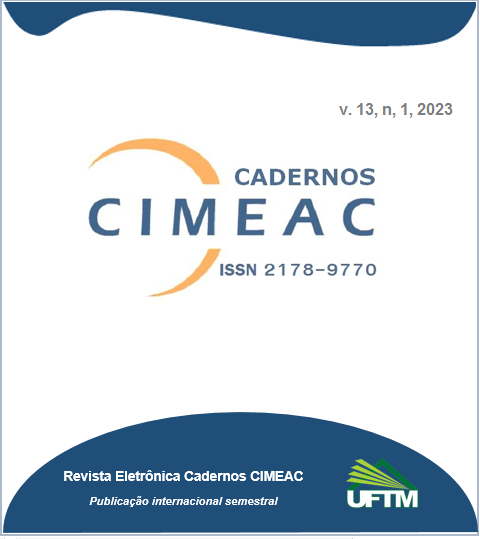Sociomaterialidade do cabelo crespo: intimidades materiais e letramento agencial no ensino de Biologia
DOI:
https://doi.org/10.18554/cimeac.v13i1.6924Resumo
Como testemunha das diásporas africanas, o cabelo crespo é intensamente político, cientifico, social e educativo. Todavia, no espaço escolar o cabelo crespo usado ao natural é frequentemente expresso como um traço não-humano. Para que expressões racistas não se normalizem no ambiente escolar, faz-se necessário tomá-las com porta de entrada de práticas de ensino antirracista. O presente artigo pretende contribuir nessa direção, tendo como propósito documentar as sociomaterialidades dos cabelos crespos como uma superfície afetiva por meio da qual podemos compreender as experiências raciais e o engajamento de estudantes do ensino médio com a biologia evolutiva como prática antirracista. Para análise dos dados utilizamos a abordagem teórico-metodológica da Teoria Ator-Rede (ANT), principalmente na versão apresentada por Latour (2012) e fazemos uma ampliação com a proposta de realismo agencial de Barad (2007). Em nossas análises, foi possível perceber o cabelo crespo como uma rede, um local do qual emergem intimidades materiais e que, por consequente, faz emergir letramentos agenciais (BARAD, 2000, 2001) antirracistas no ensino de biologia.
Downloads
Publicado
Edição
Seção
Licença
Os autores que publicam nesta revista concordam com os seguintes termos:
(a) Não cobramos dos autores para a publicação neste periódico.
(b) Autores mantém os direitos autorais e concedem à revista o direito de primeira publicação, com o trabalho simultaneamente licenciado sob a Licença Creative Commons que permite o compartilhamento do trabalho com reconhecimento da autoria e publicação inicial nesta revista.
(c) Autores têm permissão e são estimulados a difundir e a distribuir a versão publicada de seu trabalho online (ex.: em repositórios institucionais ou na sua página pessoal) após o processo editorial, já que isso pode aumentar o impacto e a citação do trabalho publicado (Veja O Efeito do Acesso Livre).
* * *
AUTHORS COPYRIGHT AND PUBLISHING RIGHTS
Authors who publish with this journal agree to the following terms:
(a) This journal does not charge authors for publication.
(b) Authors retain copyright and grant the journal right of first publication with the work simultaneously licensed under a Creative Commons Attribution License that allows others to share the work with an acknowledgement of the work's authorship and initial publication in this journal.
(c) For authors whose articles have been accepted: authors are permitted and encouraged to post their work online (e.g., in institutional repositories or on their website) after the publication of the text in Cadernos CIMEAC, as it can lead to productive exchanges as well as earlier and greater citation of published work (See The Effect of Open Access).

 10.18554/cimeac
10.18554/cimeac

